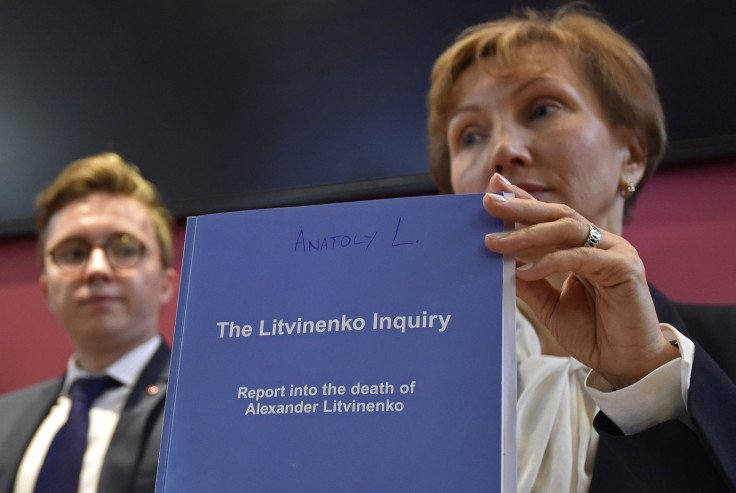Probe concludes Russian President Vladimir Putin likely ordered murder of ex-KGB spy

Russian President Vladimir Putin is suspected to have ordered the murder of a former KGB spy. According to an official inquiry in Britain, Alexander Litvinenko’s death in London was “probably” approved by the president.
Litvinenko died in November 2006 after drinking a green tea laced with radioactive poison at the Millennium hotel in London. His death necessitated a British inquiry and had prompted a row with Russia, which declined to cooperate as it accused Britain of being biased in handling the case.
An inquiry found that Litvinenko’s alleged killers, KGB bodyguard Andrei Lugovoy and Dmitry Kovtun, acted as part of an operation “probably” approved by Putin and Nikolai Patrushev, the then-head of Federal Security Service (FSB).
“The FSB operation to kill Mr Litvinenko was probably approved by Mr Patrushev, then head of the FSB, and also by President Putin,” senior British judge Robert Owen, who led the inquiry, said.
He concluded that Lugovoy and Kovtun met Litvinenko and placed the rare polonium 210 in a teapot at the Pine Bar inside the hotel on Nov. 1, 2016. Traces of high concentration of the potent radioactive isotope were found in the teapot and the bar.
According to Owen, Moscow had strong reasons to kill Litvinenko. He was regarded as a traitor to the FSB by accusing the group of carrying out 1999 apartment block bombings in Russia. The ex-spy, who was granted British citizenship a month before he died, had also started to work for MI6, the country’s foreign intelligence agency. He also made allegations against Putin, Reuters reports.
Litvinenko told detectives that he believed Putin had ordered his killing. It took over three weeks before he died.
“The conclusion that the Russian state was probably involved in the murder of Mr Litvinenko is deeply disturbing,” Home Secretary Theresa May told the parliament on Thursday, adding that it was a “blatant and unacceptable breach of the most fundamental tenets of international law and of civilised behaviour.”
May also announced freeze on the Lugovoy and Kovtun’s assets.
The UK government has summoned the Russian ambassador to the Foreign Office for an account of the FSB’s role in the case.
Lugovoy, who is now a Russian lawmaker, called the accusations “absurd,” saying it was just a “pathetic attempt by London to use a skeleton in the closet for the sake of its political ambitions.”
Litvinenko’s widow, Marina, on the other hand, was “very pleased” with the British finding. She also called for the imposition of targeted economic sanctions and travel bans against the purported killers, as well as Patrushev and Putin.





















